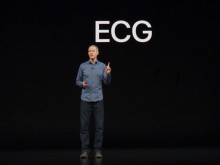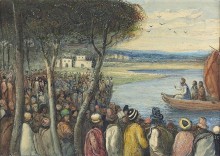What qualities make people good members of a team? In other words, what personal virtues are conducive to working with others to accomplish goals?
The answer to this question should be as important to a parish or other Catholic institution as it is to a Fortune 500 company. That’s why we spend a lot of time on it in the leadership team trainings we offer. We want the team to articulate the virtues they prize as central to who they are and want to be as a parish or other organization.
One of the training exercises involves identifying some members of the organization who have been ‘star performers.’ The team then works to isolate one by one the traits that have made them so valuable. Conversely, we ask them to identify personal traits they have seen that have damaged the organization’s harmony and results. What the team is doing is bringing into clear focus the qualities worth embodying and worth seeking in new members, and those to avoid.
In Patrick Lencioni's new book, The Ideal Team Player, he articulates three virtues that his consulting firm, The Table Group, has identified as central for their own team. With his usual preference for plain speech, he lists them as ‘humble,’ ‘hungry’ and ‘smart.’
Before getting into them, I want to emphasize again that it is essential for every leadership team to articulate its own ‘core values’ – values the team embraces as central to their organization’s culture, to how they behave. Having said that, I believe Lencioni’s three are compelling enough to be somewhere on anyone’s list of desired virtues, so I’d like to look briefly at each.
Humble
This one is pretty easy to understand. Humble persons are always ready to listen and learn, don’t have big egos and don’t try to dominate others. They are happy, not jealous, when others succeed. They don’t need their ideas to be the biggest and best. They are slow to take credit for themselves and quick to appreciate the gifts of others. But humility is not ‘false modesty’ or a lack of confidence, so they recognize and readily offer their own gifts.
Hungry
A person who is hungry is passionately invested in the team’s mission and eager to do what it takes to help the organization achieve its goals. Hungry team members are go-getters, but for the sake of the common mission, not for personal pride and advancement. And while they gladly go above and beyond basic expectations in giving time and energy, they also know the importance of balancing their hunger for that mission with their family and other responsibilities.
Smart
This one takes a little more explaining, because smart here doesn't refer to intellectual ability. It is about relational intelligence – “people smarts.” Those who are smart in this sense are tuned in to others, have empathy and are able to deal with a wide variety of personalities. They know when to challenge or push, when to hold back, how to give support and encouragement, etc. They have good self-awareness about how they come across. This is the opposite of the “clueless” person who seems to have no antennae for these kinds of things, regularly relating to others in ways that are awkward, annoying or even infuriating.
This is just a thumbnail sketch of the picture Lencioni paints in The Ideal Team Player, but probably enough to help us recognize what a delightful asset it is to have people on our teams who are humble, hungry and smart as described (and what train-wrecks can happen when these traits are lacking). For a discussion of how to encourage these traits in oneself and one’s team, and how to screen for them in new members, you’ll have to read the book!
















